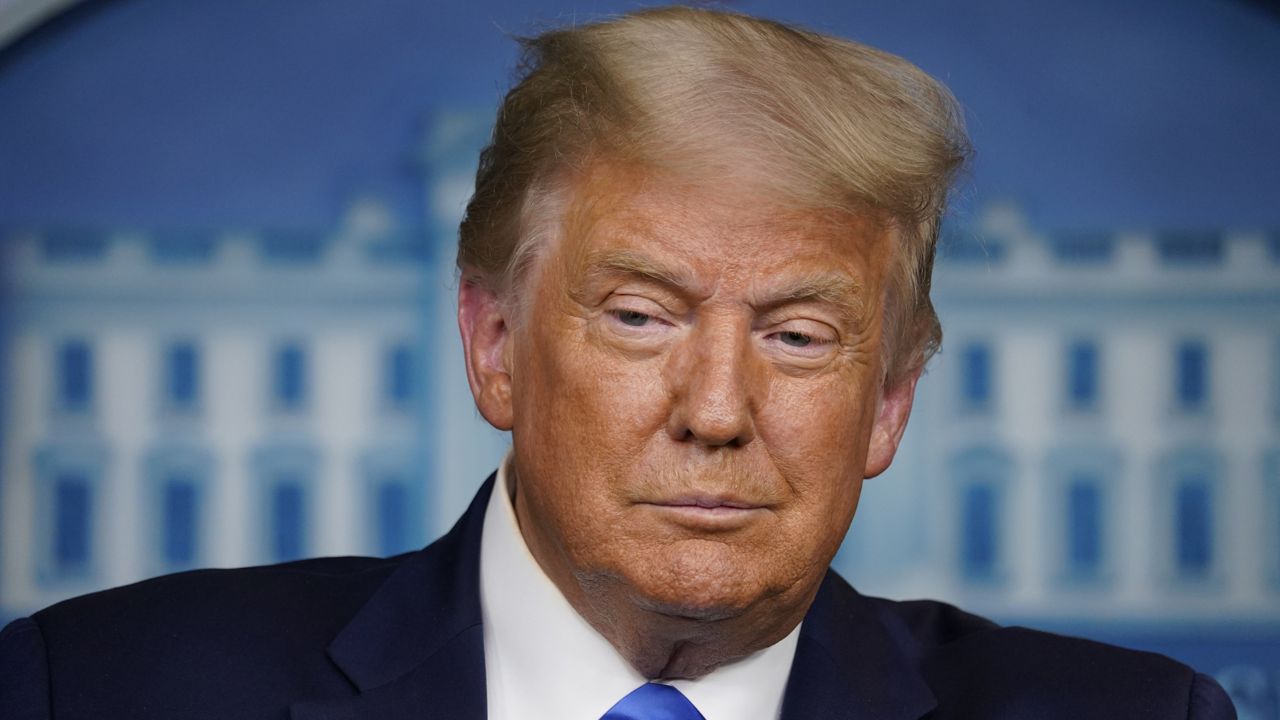WASHINGTON, D.C. — President Trump on Wednesday praised Kentucky’s Attorney General Daniel Cameron for his handling of the Breonna Taylor case just hours after it was announced that no officers would face charges related to Taylor’s death.
Earlier in the day, Kentucky prosecutors said that two officers who fired their weapons at the Black woman were justified in using force to protect themselves. Taylor, an emergency medical worker, was shot multiple times by officers who entered her home on a no-knock warrant during a narcotics investigation.
The only charges brought by the grand jury were three counts of wanton endangerment against fired Officer Brett Hankison for shooting into Taylor’s neighbors’ homes during the raid on the night of March 13.
During a press conference at the White House, the president praised Cameron’s work on the case, saying, “He’s handling it very well.” The president also quoted Cameron’s address where the attorney general said in part, “mob justice is not justice,” calling Cameron’s words “really brilliant.”
Trump added that he has a phone call scheduled with Gov. Andy Beshear, also hailing the governor’s decision to call in the National Guard as a “very positive thing.”
In Kentucky, many vehemently disagreed with the president’s sentiments.
Ben Crump, an attorney for Taylor’s family, denounced the decision as “outrageous and offensive,” and protesters shouting, “No justice, no peace!” began marching through the streets. Some sat quietly and wept. Later, scuffles broke out between police and protesters, and some were arrested.
Right after the decision, protesters began gathering in Louisville, with some preparing food and others bringing cases of water to “Injustice Square,” the park where people have demanded justice for Taylor.
But as protests and civil unrest grow across the country, the president seemingly will not commit to a peaceful transfer of power should he lose the November elections.
“Well we’re going to have to see what happens, you know that. I've been complaining very strongly about the ballots and the ballots are a disaster,” Trump said. When pressed on whether the president would set an example by conceding should he lose, Trump doubled down on his claims that mail-in voting will affect the outcome of the election.
“We want to get rid of the ballots and ... there won’t be a transfer, frankly, there’ll be a continuation,” he said.
It’s a frequent talking point for the president in the leadup to the election, but experts say there is little to no evidence to prove widespread election fraud.
A study from the nonpartisan Brennan Center for Justice found only 491 instances of mail-in voter fraud between 2000 and 2012—a period when billions of absentee ballots were cast. In 2017, the center ranked the risk of ballot fraud at a miniscule 0.00004% to 0.0009%, based on studies of past elections.
The Associated Press contributed to this report.



